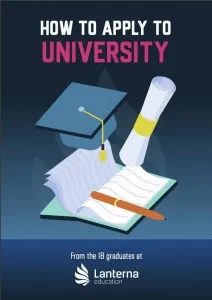Are you thinking about your post-IB plans yet? It’s never too early to start considering what you might be interested in doing after you finish the IB Diploma! Applying to universities is not something that will happen overnight – it requires you to do your research, take your time, and prepare thoroughly. For many it feels difficult to know where to start in this whole process, so that’s why we’re here to help you out! If you’re planning on studying in the UK, here are our tips on how to best choose a university!
Methods of Choosing Universities
There’s essentially 2 main ways you can go about choosing the course and university you want to apply for:
1. Choose Course, Look for University
You may have already decided what you want to study and just want to find the best place to study that particular subject – what’s the best way to do that? UCAS is your best friend. It is the hub for you to explore your options, apply to university, and do your research for your post-IB days.
Go ahead and search for the subject that you’re interested in, and UCAS will provide you a list of all the universities in the UK that offer that particular course! Have a look around and see if a particular university tickles your fancy. Things you may want to consider include (but are not limited to):
a. Location – do you want to live in a city, on campus, closer to nature?
b. Type of degree – would you like to do a bachelor (typically 3 years) or a master’s (typically 4+ years)? Some courses are available as a BA/MA as well as BSc/MSc – which one suits you better?
c. Application requirements – certain courses require you to have taken specific courses in your IB or to achieve above particular grades in order to consider applying
d. University reputation – every university has their own niche! Some are known for their excellent sports facilities, others for their arts; some for their world-class lecturers, and others for the spectacular student life. What interests you the most?
Through this process try to make a shortlist of 5-10 universities that you might consider applying to!

Interested in more top application tips? Click here to access our FREE Guide!
2. Choose Location, Look for Course
Perhaps you have a good idea of where you want to study – you’ve always loved the idea of living in London, the fields of St. Andrews are calling to you, or the picturesque city of Bath is too beautiful to say no to – but you have no idea of what you want to study! Don’t worry, many of us were in a similar position! Luckily, UCAS makes life extremely easy for you to! Simply search for the particular university or city that you could see yourself studying in, and you’ll be presented with a list of all the courses at those universities. Scroll through and see if any particular courses seem more interesting than others.
Keep in mind, when considering if you’ll find a course interesting or not, that the best way to find out more information about a particular course is going to the universities website directly, or by actually visiting the university at an open day! You can ask current students questions about what the course is like to see if it sounds like something you might enjoy.
Another great tip is that when considering whether a particular course might be the ‘right’ one for you, taking a peek at the entry requirements usually sheds some light on the true content of the course. If you’ve never been a fan of math but a course has specific requirements on your IB math grade (ex. Get above a 6 in Math SL), chances are that you’ll be doing a lot of math in that subject! Why would you choose to study a subject that you don’t enjoy!? University is your chance to focus on the particular subjects that you loved in school!
If you’ve already chosen your favourite course and university you might be ready to start preparing your application! Check out our blog post that walks you through information on how to write your personal statement and what else to include in your application!
Need some assistance with your IA? Find out more about who our tutors are!




